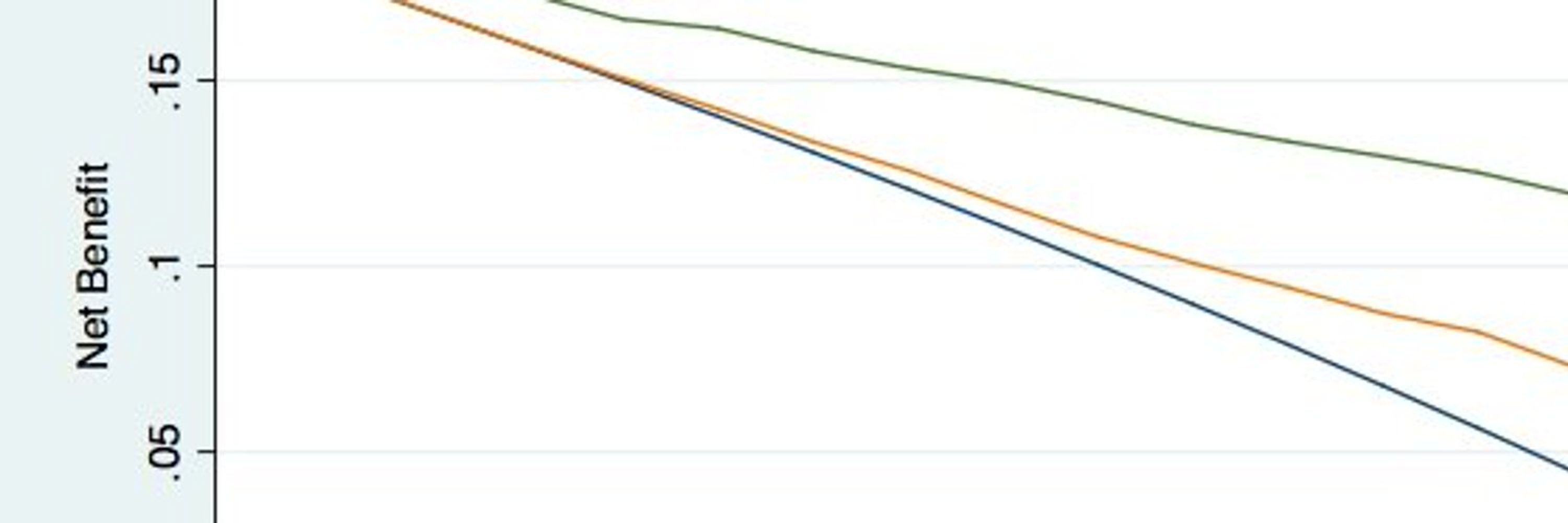
Andrew Vickers
@vickersbiostats.bsky.social
Biostatistician at Memorial Sloan Kettering Cancer Center. Special interest in prostate cancer, risk prediction, patient-reported outcomes, decision-making.
I actually love this "trick". When we refused to do this analysis for an investigator, he complained to my boss, and then "fired" us as collaborators. Great! We never have to work with him again!
October 30, 2025 at 12:36 PM
I actually love this "trick". When we refused to do this analysis for an investigator, he complained to my boss, and then "fired" us as collaborators. Great! We never have to work with him again!
Sepsis prediction not my field, but my anecdotal experience is that these models not well validated in the first place and don't work well in practice. Clinicians pick up on that and don't trust the model.
October 7, 2025 at 10:32 AM
Sepsis prediction not my field, but my anecdotal experience is that these models not well validated in the first place and don't work well in practice. Clinicians pick up on that and don't trust the model.
It is the power of ideology. Fight it.
October 3, 2025 at 3:24 PM
It is the power of ideology. Fight it.
This has a long history: see Hofstadter on the paranoid style.
September 24, 2025 at 8:17 PM
This has a long history: see Hofstadter on the paranoid style.
yes, in the paper!
September 9, 2025 at 11:31 AM
yes, in the paper!
Most common pitfall: ignoring it entirely!
September 8, 2025 at 8:05 PM
Most common pitfall: ignoring it entirely!
September 5, 2025 at 2:31 PM
exactly so! ANCOVA great for experimental, not always appropriate for observational. If your question is "does regimen A or B build strength faster?" and you e.g. randomized to A vs. B, your question is "if you started at a given strength level, would A or B make you stronger".
September 4, 2025 at 8:42 PM
exactly so! ANCOVA great for experimental, not always appropriate for observational. If your question is "does regimen A or B build strength faster?" and you e.g. randomized to A vs. B, your question is "if you started at a given strength level, would A or B make you stronger".
It is not about bias, it is about the question you are asking. ANCCOVA asks the question "would increases in strength from training be the same in men vs. women if it were true that men and women had the same strength at baseline?". I don't find that a very interesting question.
September 4, 2025 at 10:50 AM
It is not about bias, it is about the question you are asking. ANCCOVA asks the question "would increases in strength from training be the same in men vs. women if it were true that men and women had the same strength at baseline?". I don't find that a very interesting question.

